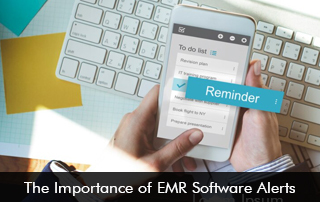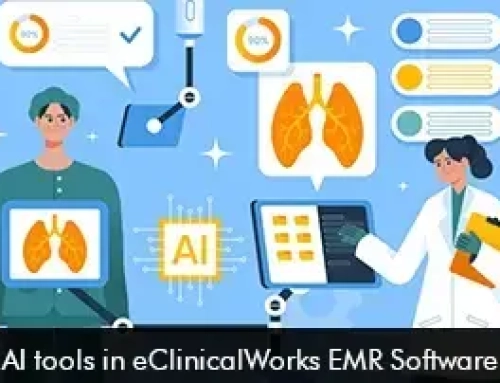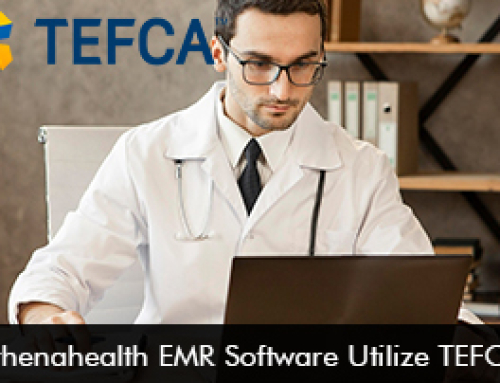Electronic Medical Records (EMR) Software is a robust solution that has helped to streamline clinical, administrative, and financial workflows. EMR systems have been rapidly implemented by hospitals throughout the USA to enhance the care delivery process and even improve patient safety. The effective use of the EHR software alerts feature can simplify transitions of care, help with chronic care management, and boost patient safety.
Different Types of EHR Software Alerts
Electronic medical records software is critical to upholding the highest standards of patient care and security. Using these notifications, healthcare providers can guarantee prompt interventions and facilitate clinical decision-making procedures. Let’s look into the robust EMR Software alert features that can empower clinicians and boost patient safety:
- Drug-Drug Interactions
- Allergy Alerts
- Medication Dose Range Checks
- Duplicate Therapy Alerts
- Lab Result Alerts
- Preventive Care Reminders
- Chronic Disease Management
- Critical Value Alerts
- Immunization Alerts
- Workflow and Documentation Alerts
The Importance of EMR Software Alerts for Health Systems
Effective Electronic Health Records (EHR) Software alerts functionality such as admission, discharge, and transfer (ADT) notifications and reminders can help improve clinical efficiency and support care coordination. These alerts promptly communicate crucial patient information to clinicians through the software interface. When physicians and nurses leverage software alerts functionality medication errors can be reduced by 52%.
3 Ways EHR Software Alerts Can Be Used to Enhance Patient Outcome Levels
Electronic medical health records software provides reliable and safe access to patients’ complete medical information. This helps providers make accurate decisions and aid in patient diagnosis at the point of care.
The following 3 ways that physicians can use EMR alerts to enhance health outcome levels and streamline clinical operations.
- Transitions of care – Provider communication is crucial during transitions of care. This helps to ensure that all the care teams involved have accurate patient information to support their decision-making. ADT alerts that are provided by the powerful EHR systems can help care teams be updated with relevant patient information this helps to enhance care coordination and ultimately reduce hospital readmissions. ADT information can be shared across the care continuum and monitor a patient’s progress effectively.
- Chronic care management – EMR Software alerts also help clinicians with clinical decision support and treat patients with various chronic diseases. Notifications can also aid providers in diagnosing and starting treatment for chronic disease earlier as clinicians are reminded to screen for different conditions. A 2017 study about EHR Software alert effects on screenings for hepatitis C virus among baby boomers revealed that these alerts can help to streamline patient diagnosis.
- Patient safety – Prescription alert functionality offered by the Electronic Health Records software can improve patient safety. These alerts can warn doctors of potential adverse drug events such as drug interactions with other medications and provide allergy warnings. Patients are saved from allergic reactions and any potential drug interactions.
Useful and timely EMR Software reminders about patient status updates, test screenings, and care delivery are a simple way to improve health outcome levels and care quality.








